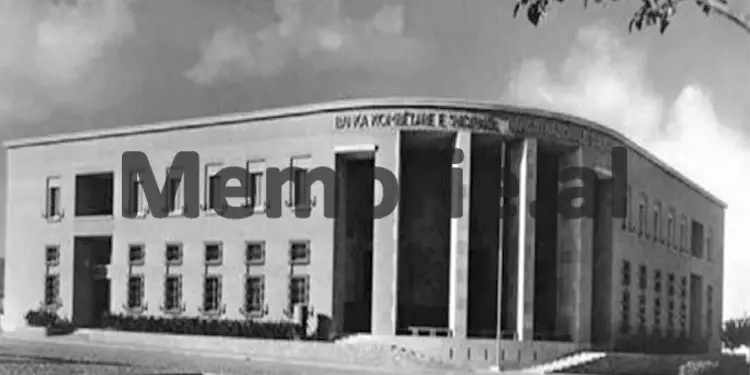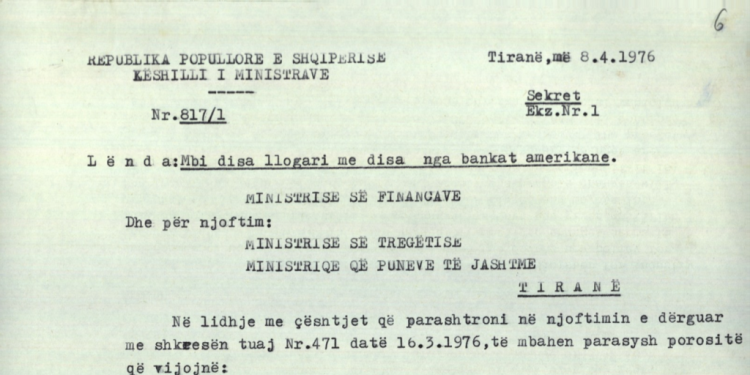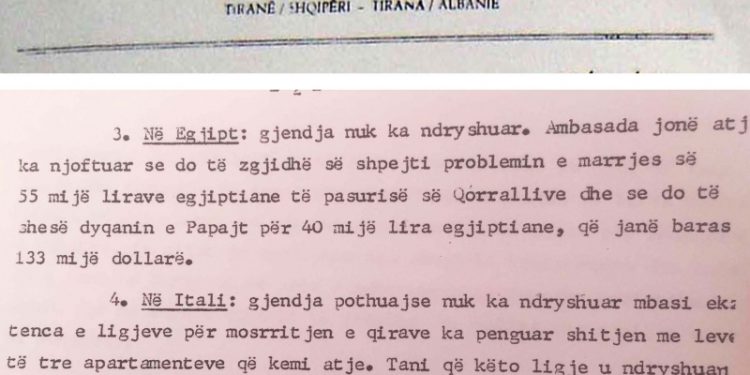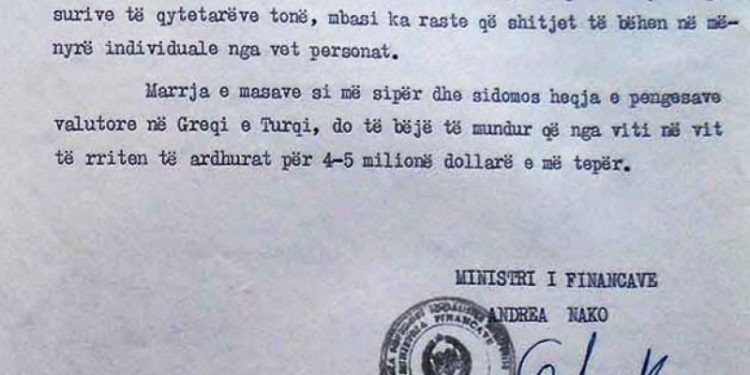Memorie.al / Even though Enver Hoxha’s communist regime had severed political and diplomatic relations with the United States of America and many European countries, the economy still remained a connecting point. Despite the absence of official visits and diplomatic exchanges, during the period of centralized economy, Albania collected a series of funds from European and American countries. To withdraw foreign currency from these countries, the Albanian financial structures had established an entire network of bank accounts in these countries.
A secret correspondence between the Ministry of Finance, the State Bank, the Ministry of Trade, and the Ministry of Foreign Affairs provides details on how this network of bank accounts, used for withdrawing foreign currency, functioned. The correspondence from March 1976 reveals that the State Bank had bank accounts in 12 American banks, even though officially and politically it considered the US an enemy state.
In total, the number of bank accounts in different currencies amounted to more than 50. These accounts were used for three main reasons: for withdrawing remittances from emigrants, for foreign trade transactions, and for revenues secured by the ” Commission Company,” (Commissioning Society), which managed the inheritances of Albanians abroad.
What emerges from this secret correspondence is that Albania had direct trade relations with the United States of America in the 1970s, trading sage and tannin extract there. From this trade, it collected considerable amounts of dollars. The foreign currency collected through this network of bank accounts was about 10 million dollars per year.
“Since its creation, the State Bank continues to maintain dollar current accounts in 12 American banks. The following main operations are carried out through these accounts:
- Remittances made by economic emigrants from the USA to their families and relatives in our country, which amount to about 2 million dollars per year.
These transactions are done partly through direct payment orders that American banks send to our bank for individuals with specific addresses, and partly through checks that the emigrants themselves send to their families and relatives.
The checks are received by the State Bank and sent for collection primarily to an American bank, which collects the funds from the other American banks on which the checks were issued for payment.
- Revenues from inheritances realized by the Commission Company, which amount to about 350 thousand dollars per year. These revenues are also realized like emigrant remittances, either through direct payment orders or by checks, depending on how it is more convenient for the American law firms, which are correspondents of the Commission Company, and are compensated based on the amounts realized, to carry out the operations in the American banks. The Commission Company conducts the necessary correspondence with these law firms in the USA for the completion of the documents needed for the realization of inheritances.
- Revenues and payments from import/export operations in dollars, conducted by Foreign Trade enterprises with firms operating in Japan, Libya, Lebanon, Malta, Finland, Denmark, etc., where the State Bank does not have free currency current accounts in the banks of these countries, neither in dollars nor in their national currencies, as well as revenues from our exports are made directly to American firms, such as sage and tannin extract. The import-export volume in the above countries in 1975 reached about 5.5 million dollars.
Revenues of the Durrës maritime agency from remittances made to it by various companies for the services it provides to their ships that come to the port of Durrës, as well as dollar payments made by our Merchant Fleet, which during 1975 (for both enterprises) reached 1.5 million dollars.”
Besides American banks, the Albanian state had bank accounts in France, Italy, Switzerland, the Netherlands, Sweden, Belgium, England, Germany, and Canada. Additionally, the Albanian state also had 18 bank accounts which it used as term deposits where over 85% of the funds in free currency were held, which were in large banks in France, Switzerland, Italy, Austria, and Belgium.
To secure foreign currency, the Albanian state had created several financial mechanisms, including a network of special stores and a society that dealt with the administration of assets that Albanians had as inheritances abroad. These unique financial mechanisms were closed with the fall of the communist regime, which brought the opening of the country and the application of the market economy. / Memorie.al
















